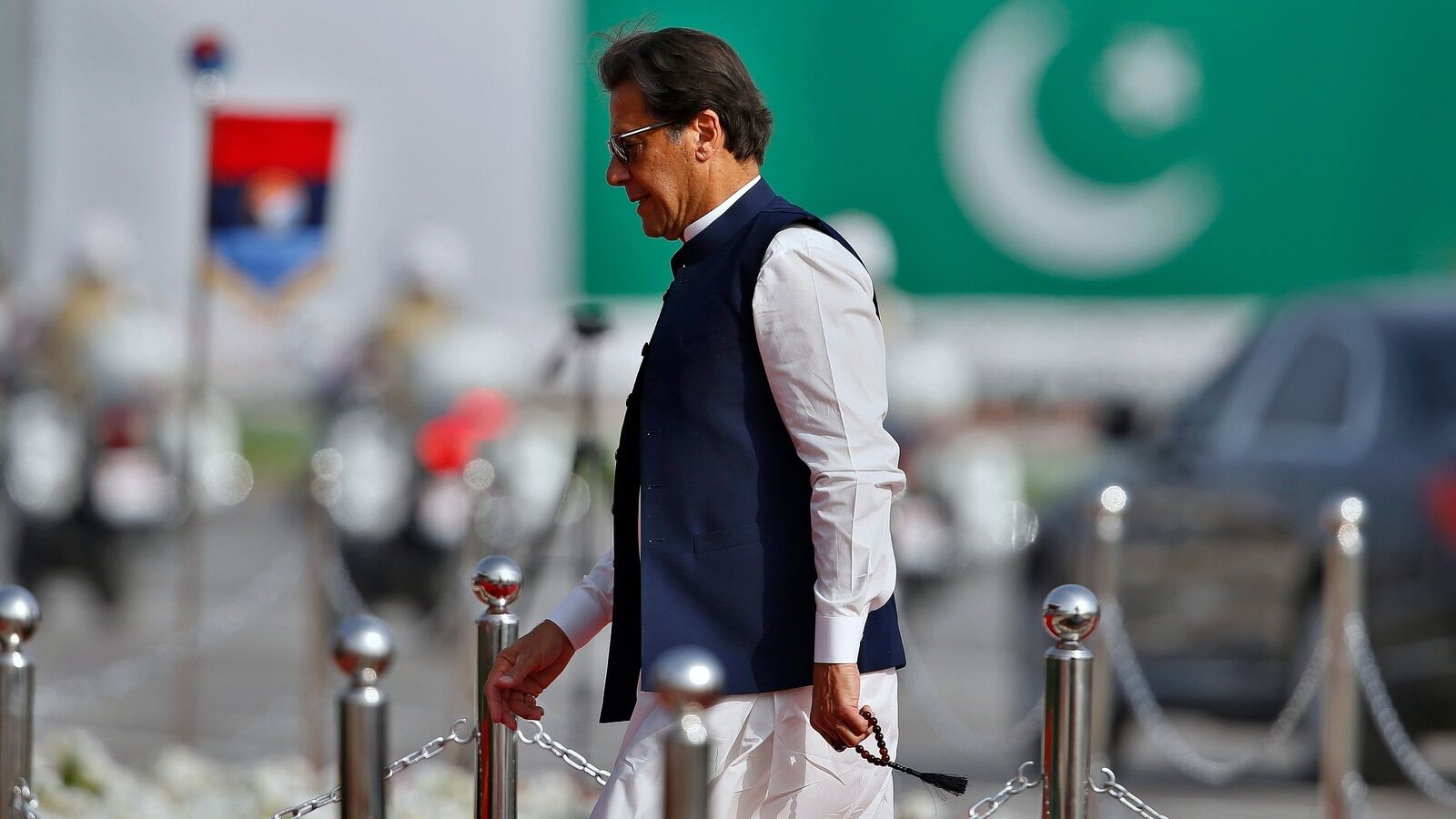Pre-determined climax!

Pakistan's Supreme Court's ruling on Thursday had left no choice for Imran Khan but to face the no-confidence motion. He did face it and the outcome, as expected, went against him. Thus, Imran Khan fell short of touching the finishing line, as had all the former PMs of Pakistan in the past. His ouster can be attributed to a bunch of reasons. In the first place, he lost support within the Parliament as key allies broke away. Then, a persistent economic crisis, coupled with double-digit inflation, cost the PM his credibility as he was failing to live up to his lofty promises made during his election campaign. Public support was also waning. All these issues apart, the road to his downfall can be nailed down to two prominent factors. First, the army's "neutral" stand wasn't neutral. The second was his foreign policy which dared to side with Russia against the warnings of the West. In fact, Imran Khan himself has been crying hoarse that he has been punished by the West for siding with Russia — citing a diplomatic warning in the form of a letter. These two factors indeed had a definitive role in Imran Khan's ouster. It is no mystery that the Pakistani Army played a critical role in bringing the Imran Khan government to power in 2018. It is also a known fact that Imran Khan's decline was scripted at the very juncture when his approach and policies differed from that of the Army. The military establishment in the country hardly allows any scope for executive interference in appointments for the military ranks. To be specific, in October last year, Imran Khan tried to retain Lieutenant-General Faiz Hameed as the military spy chief, against the nominee of army chief General Qamar Bajwa. This contention would prove to be consequential in determining Imran's fate. Next was the issue of Imran Khan's abrupt inclination towards Russia in the aftermath of the Russia-Ukraine war. It must be noted that Pakistan's Army recently announced the continuance of good relations with the West. Clearly, Imran Khan and the Army were not on the same page when it came to foreign policy approaches. Additionally, the deteriorating economic conditions within the country was a threat to the Army's reputation. The situation created a perfect ground for weeding out Imran Khan from the system. But, above all this, was the question of political stability and democratic depth within the country, and who stands to gain and lose when these aspects are tinkered with. Pakistan's political instability has been a boon for, or rather a manifestation of, military domination in the ruling establishment. Although Imran Khan may be the first PM to be ousted through a Parliamentary non-confidence motion, non-completion of the term has been a norm, for whatever reasons. After the end of military rule in Pakistan in 1988, following the death of General Zia in a plane crash, the power had been alternating between PPP and PML-N. PMs like Benazir Bhutto and Nawaz Sharif alternated to power but could not complete the full five-year term. Even the current no-confidence against PTI's Imran Khan was proposed by the Sharif brothers who are seen as the probable successor. Hidden political engineering appears to be working in the hindsight, ensuring that political stability is not achieved. It is important for the people of Pakistan to understand the significance of political stability and discredit the forces propagating instability. While the military's overarching dominance in the political landscape of Pakistan is preventing the democracy to realize its full potential, the alleged role of Western interference in the no-confidence process, at the same time, puts a big question mark on the sovereignty of the nation. The ouster of Imran Khan in Pakistan was accompanied by a lot of drama but the climax appeared to be predetermined. As of now, Imran Khan's regime has collapsed and the new regime may take over but the overall situation remains the same. Unless a more sustainable solution is found, where the continuance and termination of governments will be decided more by the will of the people than anything else, there'll be no change, no freshness.



